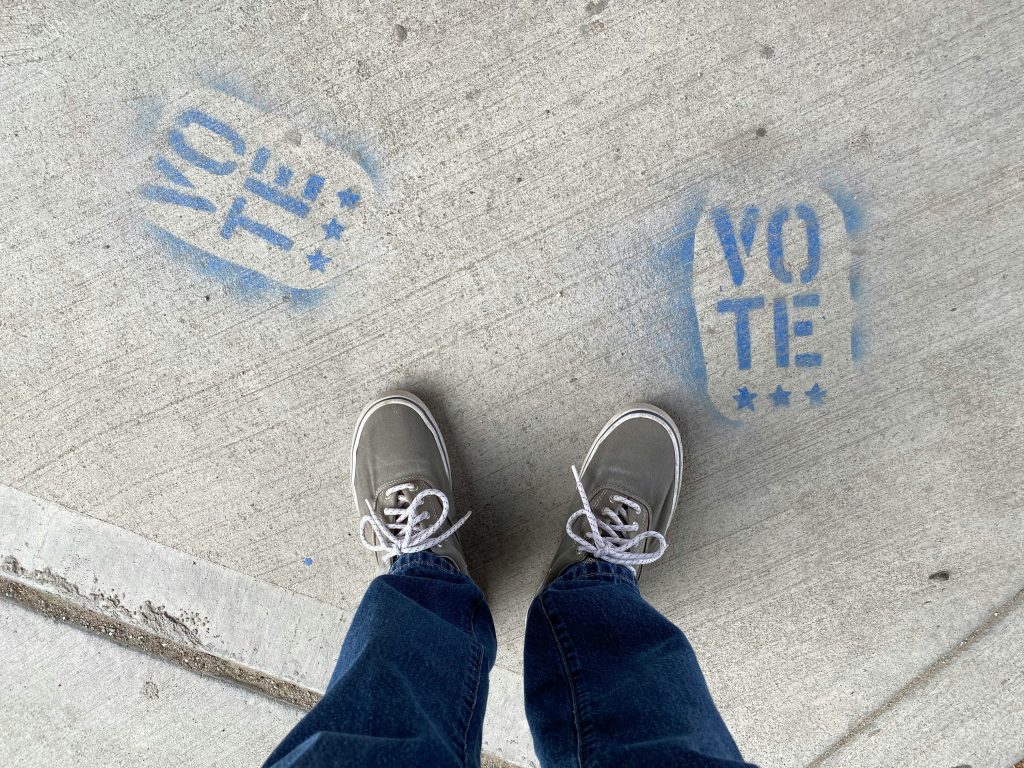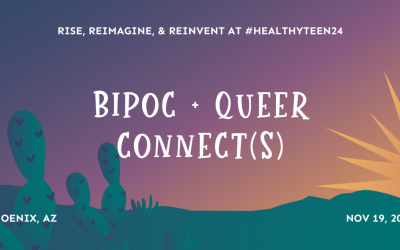
Decoding Sexual & Reproductive Health: The Language of Policy
Quick tips on how to navigate elections and make sure you vote in alignment with your values

By Lilith Breazeale

By JB Rodriguez-Anello
October 22, 2024
Since the overturning of Roe v Wade in 2022, there have been numerous legislation changes related to sexual and reproductive health. Thirteen states banned abortion care, and 39 states enacted policies regarding reproductive health in 2023 alone. Sexuality continues to be a hot topic on ballots, for better or for worse. There are currently 12 states looking to get sexual/reproductive health measures on the ballot, and countless political candidates who are committed to either protecting or squandering reproductive rights and sex ed. While dangerous initiatives have popped up all across the nation, some states are wracked with both abortion bans and little to no sex education. You don’t have to sit back and watch these changes unfold, though. The upcoming election offers an excellent opportunity to make your voice heard and weigh in on important decisions.
With all the hubbub, misinformation, and legalese, we know that elections can be hard to navigate. Read on for some tips on how to ensure you vote in alignment with your values.
The Wording
The language used in sex education bills can be intentionally complex, often filled with jargon and seemingly innocuous terms that can mask hidden agendas. Don’t be intimidated by lengthy policy; legislators are people like us. For example, in sex education measures, watch out for phrases such as “opt-in,” “parents’ rights,” “gender ideology,” “bringing the focus back to education,” and anything that equates sexual education programs to “sexualization” or claims that sex ed can make children more sexually active or promiscuous (not true, by the way, and we know this from extensive research). These terms are often used as “dog whistles” to signal a particular ideological stance on sex education. Luckily, EducateUS has compiled a list of these terms to watch out for in their Opposition Glossary, found at the end of this guide. Advocates for Youth, a national nonprofit, has also created a glossary of popular and key terms in sex ed policy, to empower individuals to make informed decisions on the ballot.The Buzz
Look to reputable sources–what are they saying about this legislation? Reliable sources you trust can often be a great tool for understanding candidates and proposed legislation measures. Political Action Committees (PACs), such as EducateUS, often endorse policies or candidates, and their support can be a valuable indicator of a bill’s alignment with progressive sex education goals. Additionally, investigate who is championing the bill. Do they have a history of supporting or shutting down progress in sex education? Finally, consider subscribing to newsletters from organizations, such as Healthy Teen Network and related groups. These newsletters can keep you informed about relevant policy developments and provide valuable resources for understanding complex legislation.The Reps
Sex education is primarily a local and state-level issue, so attending forums, such as town halls and school board meetings, is crucial. These events provide a unique opportunity to interact with your representatives face-to-face.Sex education is primarily a local and state-level issue, so attending forums, such as town halls and school board meetings, is crucial. These events provide a unique opportunity to interact with your representatives face-to-face.Take advantage of this time to ask clarifying questions and gauge the overall state of sex education policy in your community. By actively engaging with your elected officials, you can play a vital role in shaping the future of sex education. Be sure to check your registration status, make a voting plan, and do your homework on ballot initiatives before Election Day. Also, check out the resources below for more information on how to prepare for the upcoming election!
Resources
PHOTO CREDIT: Phil Scroggs on Unsplash
Lilith (she/they) is passionate about making a positive impact on youth across the country. She joined Thrivology for the chance to help progress inclusive sexual health care and improve access to reproductive health education.
JB (he/they) is a UCSD alum with a BS in Psychology and a BA in Visual Arts - Media. His current fields include marketing and communications, sexuality education, and art. They are currently a Thrivology Youth Leader at the Healthy Teen Network.












